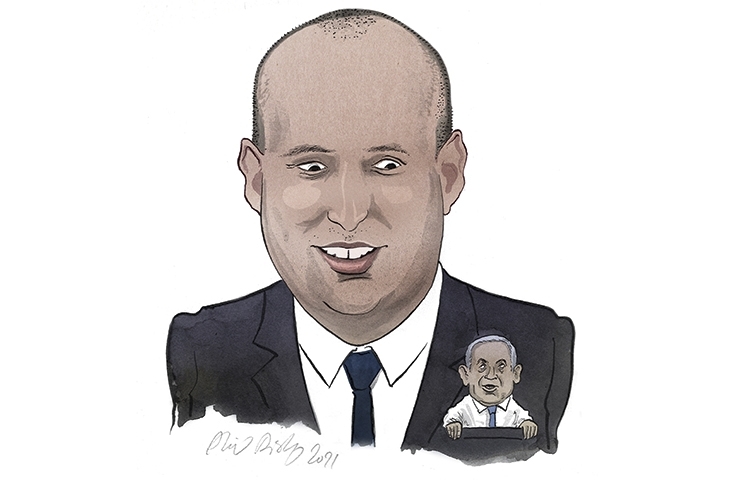Sunday saw a watershed moment in Israeli politics: Bibi Netanyahu was removed from power after 12 years, and his government replaced by an eclectic coalition headed by Naftali Bennett and Yair Lapid, both of whom will serve as Prime Minister under a rotation agreement, starting with Bennett. It may be that one of Bibi’s greatest achievements was bringing together politicians with little in common but the belief that it was time for Bibi to go.
Anyone watching the vote to approve the new government would have been on the edge of their seat: the new government was approved by a single vote (passed 60 to 59). The vote was preceded by a speech from would-be PM Bennett, who was constantly interrupted by Likud and other right-wing and orthodox Knesset members, who heckled and cursed him. Bibi was one of the few people in the room wearing a mask, so his expression couldn’t be seen – but the look in his eyes was telling of the storm within.
The Bennett/Lapid government has the mammoth task of implementing policies in key areas neglected for years by Bibi’s government, mending deep divisions in Israeli society, managing security threats, and doing all this while maintaining the integrity and stability of a shaky coalition.
Bennett has the mammoth task of implementing policies in areas neglected by Bibi’s government for years
The coalition is made up of eight parties representing the left (and hard-left), right (and hard-right), centre and an Islamist Arab Israeli party. To prevent it from falling apart, the factions decided to concentrate on issues on which there are widespread agreement, and stay clear of the most contentious subjects for the time being. These include the settlements and negotiations with the Palestinians. It is likely that nothing dramatic will happen on either, with all the parties aiming to maintain the status quo.
The new government has announced plans for far-reaching reforms in health, education, housing, and transportation, as well as investment in neglected geographical areas, in Arab towns, and in high-tech industries and education – where Israel’s economic strength lies.
A major change proposed in the coalition agreement is limiting the time a prime minister can serve to eight years, or two terms, before they are able to act as PM again. They hope preventing Netanyahu from serving as PM anytime soon will discourage him from trying to topple the government. The absence of orthodox parties from government, for the first time in years, will facilitate implementing better and fairer economic policies and transform religious conversion practices, areas which have been heavily influenced by Orthodox parties serving under Netanyahu.
Many of the new ministers are experienced politicians. Some, like defence minister Benny Gantz, have valuable experience outside of politics. While Netanyahu overshadowed his ministers, and all were expected to fall in line, the current ministers represent strong, pragmatic and independent personalities. Each has their own agenda, and they will have to walk a tightrope in order to keep the government effective – but stable.
They include a right-wing justice minister and leader of New Hope, Gideon Sa’ar, who is set to influence key issues including politically-volatile supreme court cases such as the Nation State Law. The leader of Yisrael Beiteinu, Avigdor Lieberman, is set to be one of the most powerful people in government. He will not only serve as finance minister but also control the Knesset’s finance committee through his party. This may raise problems with oversight and transparency –Lieberman has faced allegations of corruption, and several of his former party members have been convicted of serious corruption offences (Lieberman denied all allegations of wrongdoing in these cases). The transition from a hard-right PM to a centrist one while maintaining stability and a smooth continuation of governance will also test the coalition’s resilience.
This week the government will face its first major challenge: a planned Flag March on Tuesday to celebrate the reunification of Jerusalem. Hamas have threatened another round of violence unless the march is cancelled or its route changes. This places Bennett in a difficult position; if he cancels the march, it will look as if he has bowed down to Hamas and to the left – both weakening his already narrow support base, and possibly raising objections from his KMs. If the march goes ahead as planned, there could be more fighting with Hamas as well as internal riots.
Bibi will not go down without a fight. He still has a base of hard-core supporters, but this may not be enough for him to maintain control over Likud. The two strongest contenders for taking over the party are the seasoned politician Israel Katz and the popular former mayor of Jerusalem Nir Barkat. Netanyahu is now facing battles on several fronts: a personal one in his corruption trial, a battle over the party leadership, and a battle to undermine and collapse the new government.






Comments